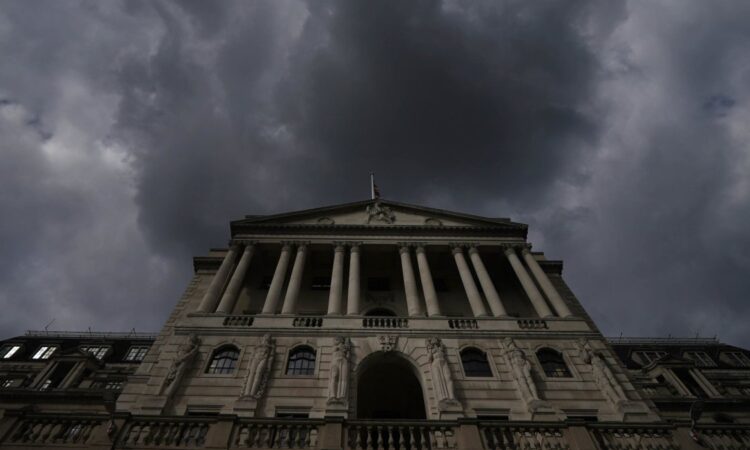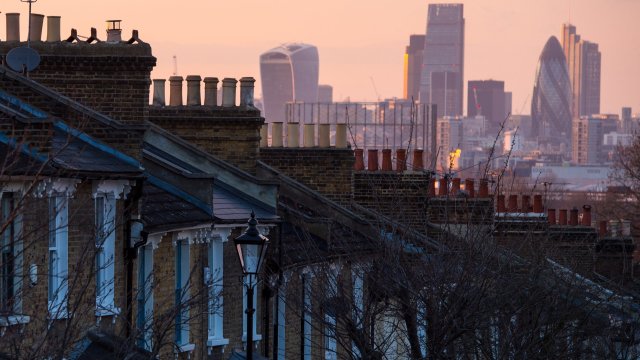
The Bank of England is meeting once again to decide on interest rates.
The UK’s central bank makes the decision based on economic factors including inflation.
When is the next meeting?
The Bank of England will next meet on Wednesday, 21 June 2023. Representatives will discuss what to do to the base interest rate.
The Bank of England’s Monetary Policy Committee (MPC) is a group of nine economists and they meet eight times a year.
In the last announcement on 11 May, the MPC announced the bank rate was 4.5 per cent, up from 4.25 per cent.
What will happen to rates?
Interest rates are expected to rise again this month, marking the 13th successive increase.
The Bank of England will reveal the next base rate decision on Thursday 22 June, and could raise it by as much as 0.5 per cent.
It was previously widely expected that the Bank would increase it by 0.25 percentage points, from 4.5 per cent to 4.75 per cent, which would already be the highest rate since 2008.
But there are now fears it could jump to 5 per cent, due to higher-than-expected wage figures, combined with the the GDP data released on Wednesday. The fall in the rate of price rises from 10.1 per cent to 8.7 per cent also wasn’t as much as had been hoped.
Nicholas Hyett, investment analyst at Wealth Club, warned that the chances of a 0.5 per cent rate hike “just got higher”, after GDP data was released showing the economy grew by 0.2 per cent in April.
MoneyWeek says some analysts believe rates could rise to 5.75 per cent by the end of 2023.
Independent research firm Capital Economics believs rates may go up as high as 5.2 per cent: ““As things stand, without a rise in unemployment and an easing in wage growth and CPI services inflation, we doubt the MPC will feel comfortable with halting rate hikes.”
Laith Khalaf, AJ Bell’s head of investment analysis, said: “Current interest rate pricing reflects alarm bells ringing in the market, but some moderation in inflationary pressures over the summer would pour balm on the situation. The Bank of England will also be cognisant of the fact the full force of its tightening to date is still working its way through the economy.
“Having said that, should inflation data remain ugly, the Bank will be under pressure to take action, and so will the Treasury, if it looks like the Prime Minister’s pledge to halve inflation is at risk of falling short.”
Chancellor of the Exchequer Jeremy Hunt told Sky News last week that “there is no alternative to bringing down inflation”, adding that they “will be unstinting in our support” for the bank’s choice.
However, he has ruled out any help for people paying mortgages.
“Those kind of schemes, which involve injecting large amounts of cash into the economy, would be inflationary,” he said.” As much as we sympathise with the difficulties and do everything we can to help people seeing their mortgage costs go up, we won’t do anything that would mean we prolong inflation.”
What will the interest hike mean for my mortgage?
People on tracker mortgage rates will see the full base rate increase immediately.
The average rate for a two-year tracker is 5.49 per cent, which works out at £1,227 per month or £14,724 per year. If the rate increases to 5.99 per cent, this would increase by £732 a year, working out at £1,288 per month or £15,456 a year.
Fixed-rate mortgages have already been rising for weeks after higher-than-expected inflation data fueled speculation of further rate rises. These rates may not increase following a base rate increase, as the interest they charge is influenced by other factors including gilt yields (how much interest is made from Government debt) and swap rates (the rates that banks lend money to each other).
This pricing tends to be looking into the future, rather than what is happening now, which is why several lenders have been upping prices, and on Monday the average rate on a two-year fixed deal rose above 6 per cent, while may banks have been removing products from the market ahead of the rate increase.
People with existing fixed-rate mortgages will not see their rates increase immediately. However, someone preparing to take out a fixed-rate deal for the first time, or planning to remortgage, will be put on a higher rate.
Standard variable rate mortgages (SVRs) do not have to follow the base rate, but tend to be heavily influenced by it.
The average SVR is currently 7.52 per cent. This works out as £1,480 per month, or £17,760 per year. Assuming it goes up to 8.02 per cent, then people on these mortgages are looking at paying £792 more a year (£1,546 per month or £18,552 per year).
Three major lenders have withdrawn mortgage deals this week in anticipation of interest rate hikes.
HSBC revealed on Wednesday that it will be removing its new business residential products and reintroducing them on Thursday, most likely at a higher rate.
Coventry Building Society has also announced that it is increasing rates but has provided 48 hours’ notice to brokers. The building society’s residential and buy-to-let deals will be pulled from 8pm on Wednesday and it will launch new – more expensive – products on Friday at 8am.
It comes after Santander pulled its new business deals on Monday evening, reintroducing higher rates on Wednesday, while NatWest, MPowered Mortgages, Lendco and Selina have repriced their products.
Why are interest rates rising?
The Bank of England is raising interest rates to try to bring inflation under control.
UK inflation is currently roughly at 9 per cent, and the Bank wants to bring it back down to its target of 2 per cent.
The Bank explains: “Raising interest rates is the best way we have to bring down inflation. It means many people will face higher borrowing costs. And some businesses will face higher loan rates.
“We know that will make things harder for many people, coming on top of higher energy and food bills. But we need to act to lower inflation. Low and stable inflation is vital so that money keeps its value and people can plan for the future with confidence. It’s fundamental for a healthy economy.
“That’s why we have been raising interest rates over the last year.”
There are fears interest rates could now rise beyond the expected 4.75 per cent in June, due to wages increasing by more than anticipated. Regular pay excluding bonuses increased by 7.2 per cent in the three months to April, the Office for National Statistics (ONS) revealed on Tuesday.
Wages increasing also pushes inflation up, meaning the Bank may need to take further action to tackle it.
When will interest rates go down?
Interest rates are expected to increase to as much as 5.5 per cent by the end of this year, and could even go higher.
Most economists believe interest rates will only start falling in February or March of 2024.
It is predicted they will fall to around 3.5 per cent by 2025, according to the Bank of England forecasts.
However, this will depend on inflation. The Bank of England’s target of 2 per cent has not been reached since June 2021 and while it is now out of double digits, it is still only predicted to fall to 5 per cent by the end of this year before reaching the 2 per cent target in late 2024.






